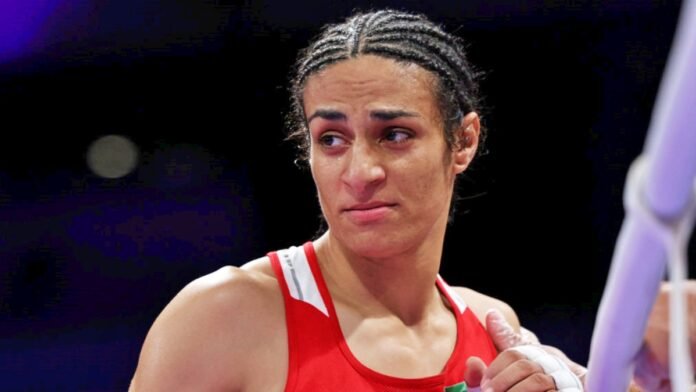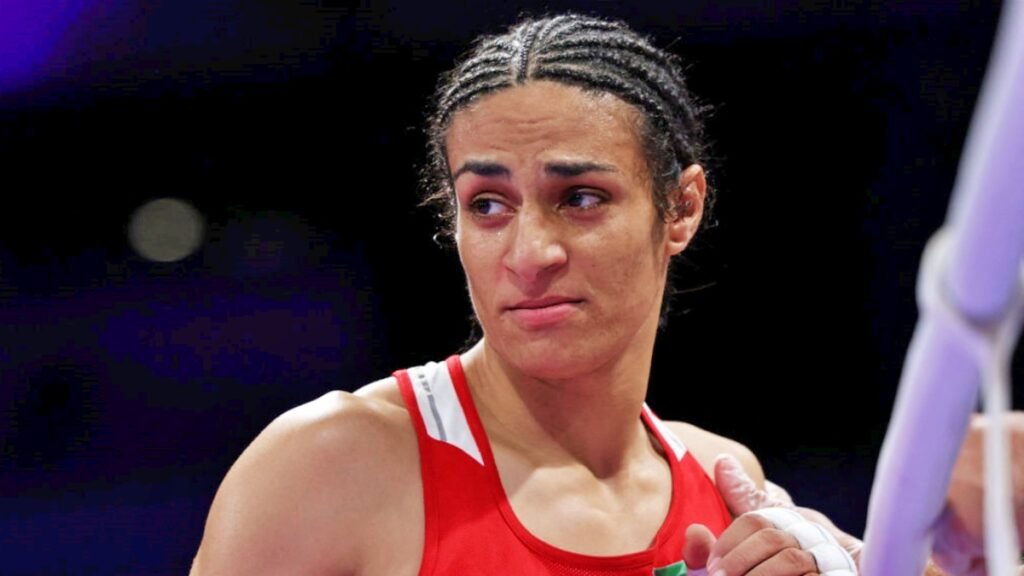
New Delhi: In a shocking development, Algerian Olympic gold medalist and boxer Imane Khelif finds herself at the center of a renewed gender eligibility controversy after a leaked medical report questioned her classification in female sports categories. The report, obtained by French journalist Djaffar Ait Aoudia, has raised significant concerns in the sports community, potentially impacting her future in competitive boxing.
Leaked Medical Report Details Rare Genetic Condition
The medical report, allegedly drafted in June 2023 through a collaboration between Kremlin-Bicêtre Hospital in Paris and Mohamed Lamine Debaghine Hospital in Algiers, indicates that Khelif may have 5-alpha reductase deficiency a rare disorder affecting sexual development primarily seen in genetic males.
The report includes an MRI and other tests, revealing several aspects of Khelif’s anatomy and chromosomal makeup that have stirred controversy. According to the MRI, Khelif lacks a uterus and has internal testes alongside ambiguous genitalia. A subsequent chromosomal test confirmed an XY karyotype, typically found in males, and a hormone test recorded testosterone levels within the male range. Additionally, the report mentioned the possibility of consanguinity between Khelif’s parents, which could be a factor in her condition.
Understanding 5-Alpha Reductase Deficiency and Its Impact on Gender
5-alpha reductase deficiency is a rare genetic condition that affects prenatal and pubertal sexual development. Individuals with this deficiency, while genetically male, may have ambiguous genitalia or characteristics that do not fit typical male or female classifications. People with this condition often experience masculinization during puberty, with increased muscle mass and hair growth, but they may lack breast development—a profile that can present complexities in gendered sports eligibility.
Potential Implications and “Unfair Advantage” Debate
The revelation of Khelif’s condition has sparked a renewed debate on what constitutes “fair competition” in gender-segregated sports. Some suggest that the physiological traits associated with 5-alpha reductase deficiency could provide Khelif with a performance edge in female categories due to higher testosterone levels and muscle mass. These claims have resurfaced after her disqualification from the 2023 World Championships, where the International Boxing Association (IBA) disqualified her over elevated testosterone levels—a move she previously called “a big conspiracy.”
Olympic Standards and the Complex Issue of Gender in Sports
The International Olympic Committee (IOC) relies on passport gender designations for eligibility, recognizing the complexity and controversy around gender classifications. Khelif’s official identification lists her as female, meeting the IOC’s eligibility threshold for female competitions. However, her disqualification by the IBA, citing high testosterone levels, highlights a growing rift between global sports organizations regarding standards for gendered sports classifications.
The IOC has previously acknowledged the lack of scientific or political consensus on gender and fairness in competitive sports, issuing guidance to sports bodies in 2021 that encourages a case-by-case approach. However, Khelif’s situation underscores the continued challenge for sports regulators to balance inclusivity with fairness.

Future of Khelif’s Career and Potential Repercussions for Gender Policies in Sports
With her medical history now public, Khelif’s future in boxing hangs in the balance. The controversy surrounding her eligibility could lead to renewed scrutiny of gender policies across sports, particularly for athletes whose physiological traits don’t conform to binary gender standards. The case also brings attention to how genetic conditions like 5-alpha reductase deficiency might be considered in eligibility frameworks, potentially reshaping how sports organizations address gender and fairness in competition.
As the debate unfolds, the sporting world awaits how this will impact not only Khelif’s career but also the broader discourse on gender identity, fairness, and inclusivity in athletics.










































